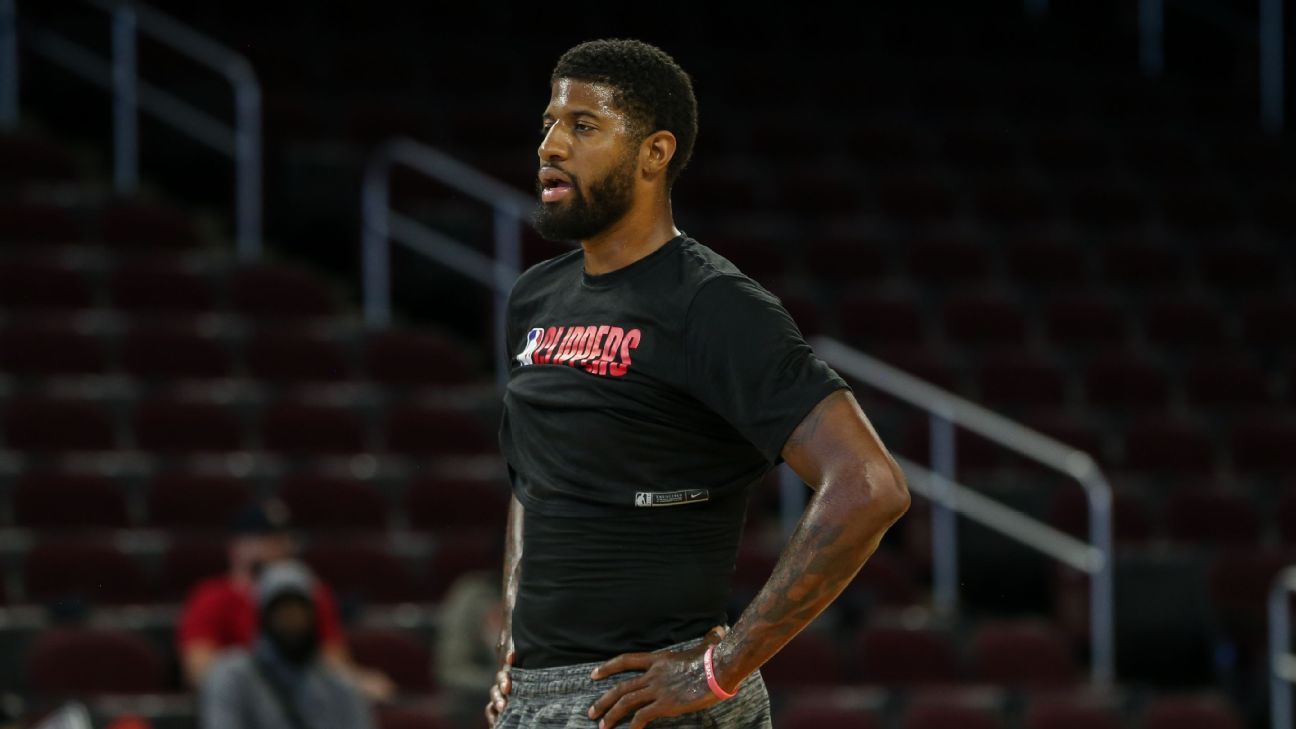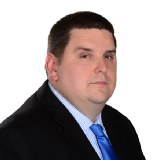After months of work, the NBA released its health and safety protocol for the resumption of the 2019-20 season on Tuesday. It covers the teams’ ramp-up over the next several weeks in their home markets, the onboarding of every team upon arrival at Walt Disney World in Orlando, Florida, and the guidelines for how the season will restart.
Over 100 pages long, the protocol is a monster document that details everything from what happens in the event of a positive COVID-19 test to the rules for playing pingpong in players’ lounges at team hotels.
Here’s an explanation for the biggest questions outlined in the NBA’s safety plan.
What happens if a player tests positive for COVID-19?
The player will be isolated and retested to make sure there isn’t a false positive. If it is confirmed, then the player will begin treatment and will undergo a period of rest and recovery lasting at least 14 days.
It is clear from reading the procedures in this document that doctors with whom the NBA consulted are concerned about potential cardiovascular risks that come along with having the virus. Players will be restricted from exercise and will have to pass cardiac tests before a return to basketball is even considered.
How often will people be tested?
The league says “regularly,” which means something less than daily. Under certain circumstances they might be tested daily.
How many people would have to test positive for the league to halt again?
It is not spelled out, but it is clear the league is preparing for positive tests. On this subject, the document says only “the occurrence of a small or otherwise expected number of COVID-19 cases will not require a decision to suspend or cancel the resumption” of the season.
As to what constitutes a critical mass, that is left undefined.
What happens if a player doesn’t want to go?
If a team determines a player is at higher risk for severe illness from COVID-19, he can be designated a “protected” player who does not have to report and will not lose salary.
Additionally, a panel of three medical experts will review players’ medical histories and could determine if a player has a higher risk for severe illness from COVID-19. In that case, a player is “excused” and will also not be docked salary.
Players have the option to challenge the “protected” status and a panel of physicians will have ultimate authority.
However, if a player doesn’t fall into either criteria and still declines to go, he will lose a corresponding number of game checks. For example, a player making $10 million per year will lose roughly $108,000 per game missed for up to 14 games.
Players with season-ending injuries who will be unable to play in Orlando, like Brooklyn Nets stars Kevin Durant and Kyrie Irving, will still receive their full pay.
MORE: Best free agents for new roster rules
What about older coaches? Will they be allowed?
Like with players, teams might declare a coach or other staff member protected because of higher risk for severe illness. If a team doesn’t declare someone who might fit this profile — such as a coach over the age of 65 — as protected, the league has the option to refer the matter to a physician for review.
If the league physician determines the coach’s risk factors “present a direct threat to his or her health were the individual to participate in the agreed-upon competition,” then the league can exclude the coach from being allowed onto the campus.
What will life be like at Disney World?
It’s going to be a tough arrival. When everyone gets there, they will have to self-isolate in their hotel rooms for up to 48 hours until they have two negative COVID-19 tests. This is to make sure there is no one in the bubble with the virus.
Players and staff can’t go into one another’s rooms. Through July 21, players cannot socialize with players staying at other hotels (three hotels are being used) to limit spread if there is an outbreak.
Each team will have its own chef and food room that is open up to 24 hours a day, though they can eat with other players outside. They will also be able to order room service using an app. Eventually, teams can have meals at some restaurants on the Disney campus that will be closed down to accommodate them. They might also be able to order from select local restaurants.
Everyone on campus will be required to use a Disney MagicBand unless they’re playing basketball or working out. MagicBands will be used as hotel room keys and to check in for coronavirus testing and other medical screenings.
At each hotel, there will be a players’ lounge with video games, card tables, pingpong and other recreational activities. No doubles in pingpong for social distancing reasons and new packs will be used for each session of card games. Yes, that’s all in there.
People on campus will be able to use pools, trails and golf courses.
Teams will be able to practice and work out in three-hour blocks in various arenas and hotel ballrooms throughout the campus.
Who is in the team travel party?
This will evolve over time. To start with, each team will have 37 people inside the NBA campus. That will include up to 17 players, as well as support staff (including coaches, trainers, strength coaches, equipment managers, security and front-office personnel). Teams are being encouraged to bring a mental health professional. If not, they must make telehealth appointments available, particularly if “any player experiences increased feelings of anxiety and stress upon transitioning to the campus and being away from household family members.”
As teams advance in the playoffs, they will be allowed to add and swap out members of the travel party. Teams can add two staffers after advancing past the first round of the playoffs, and two more after the conference semifinals. That is something multiple coaches had been pushing the league to adopt, sources told ESPN.
Will they have to wear masks?
Mask usage is required when indoors by everyone except when eating or when in an individual’s room. They are not required when doing activities outside. Players, referees and bench players and coaches who sit in the first row of seating will not be required to wear masks during games.
What will the games be like?
There will be games at three different arenas. There will be no outside fans, but you will see people in stands. A limited number of players can attend games they are not playing in and there will be limited media, team executives, league and union personnel and even some sponsors allowed in.
Players will spread out over two rows of seating. There will be a public-address announcer and numerous cameras to capture the events.
What will a game day in the bubble look like for a player?
It will not be unlike a road game during the NBA season. There will be a team breakfast, a shootaround, lunch followed by free time in the afternoon at the hotel, which players typically use to nap. Then they will go back to the arena for games.
One big difference will be that players will dress at their hotels and then return to their rooms to shower after games. For now, pregame arrival fashion shows probably will be suspended.
What happens if someone leaves the campus?
No one will be stopped from leaving. But if someone leaves campus without approval and wants to reenter, they will face at least 10 days in quarantine and have to undergo deep nasal testing (other tests on campus will be shallow nasal or shallow oral testing).
There are excused absences such as for family emergencies, the birth of a child or other approved reasons. In that case, returning would require four days in quarantine as long as the person tested negative for COVID-19 each day they were outside the campus.
There will be X-ray and MRI machines on the campus for use.
Will guests be allowed onto the campus?
Yes. After the first round of the playoffs is completed, each of the eight remaining teams will be allowed to reserve between 15 and 17 hotel rooms for player guests. The number of rooms allotted to teams will be equal to the number of players they have on campus. Players will pay for the rooms of their guests.
To be allowed onto campus, guests will have to self-quarantine for a week, then quarantine and be tested at least every other day for three days in either the home market or outside of the NBA’s campus in Orlando. Anyone who tests positive during this period won’t be allowed to enter the NBA campus.
Upon entry into the bubble, guests will have to quarantine and be tested every day for four days. Anyone who tests positive during this period must self-isolate in league-designated accommodations on the campus.
At what hotels are the teams staying?
The Gran Destino Tower at Coronado Springs, the Grand Floridian and the Yacht Club will be the three hotels occupied by teams.
The top four seeds in each conference (Milwaukee Bucks, Los Angeles Lakers, LA Clippers, Toronto Raptors, Denver Nuggets, Utah Jazz, Boston Celtics and Miami Heat) will be at the Gran Destino Tower while teams seeded 5-8 in each conference (Indiana Pacers, Philadelphia 76ers, Nets, Orlando Magic, Houston Rockets, Oklahoma City Thunder, Dallas Mavericks and Memphis Grizzlies) will stay at the Grand Floridian.
The six current non-playoff teams (Washington Wizards, Portland Trail Blazers, New Orleans Pelicans, San Antonio Spurs, Sacramento Kings and Phoenix Suns) will stay at the Yacht Club.
Will there be drug testing?
Players will be tested for performance-enhancing drugs and masking agents. Unlike normal circumstances, there will be no testing for recreational drugs. Players have been advised by the league that marijuana is illegal in Florida. It is also banned at Disney World.
More: Latest timeline for the NBA’s season return

